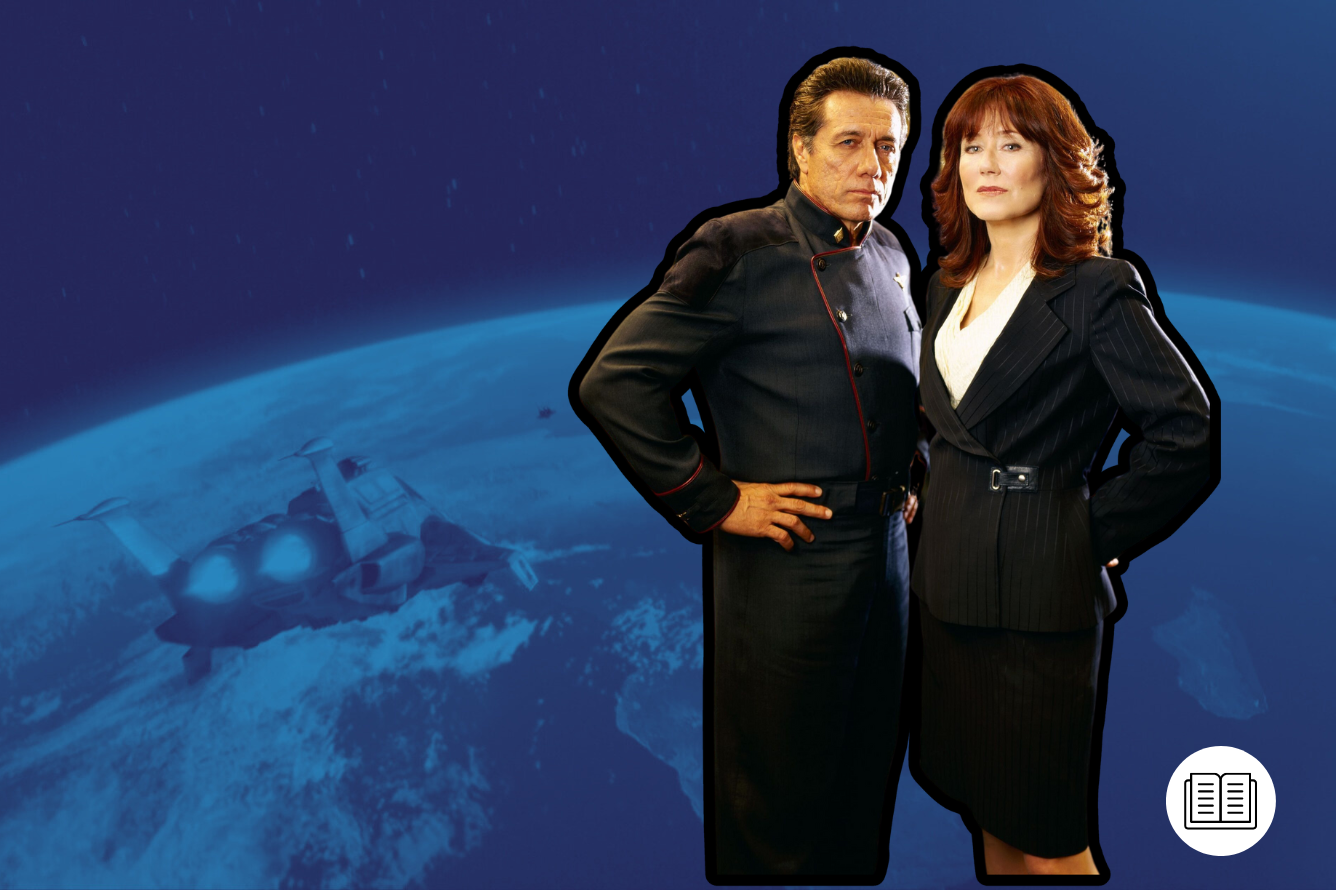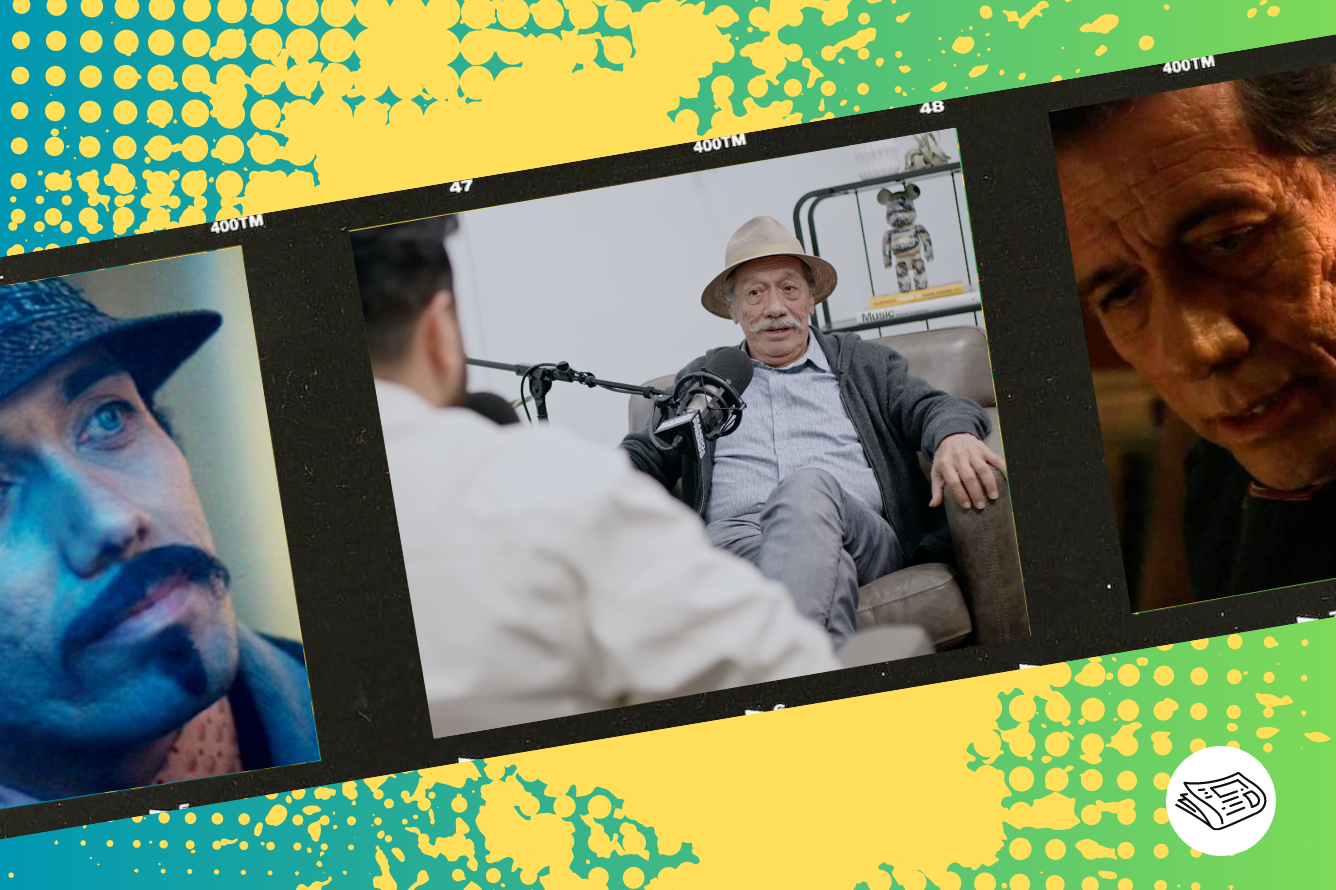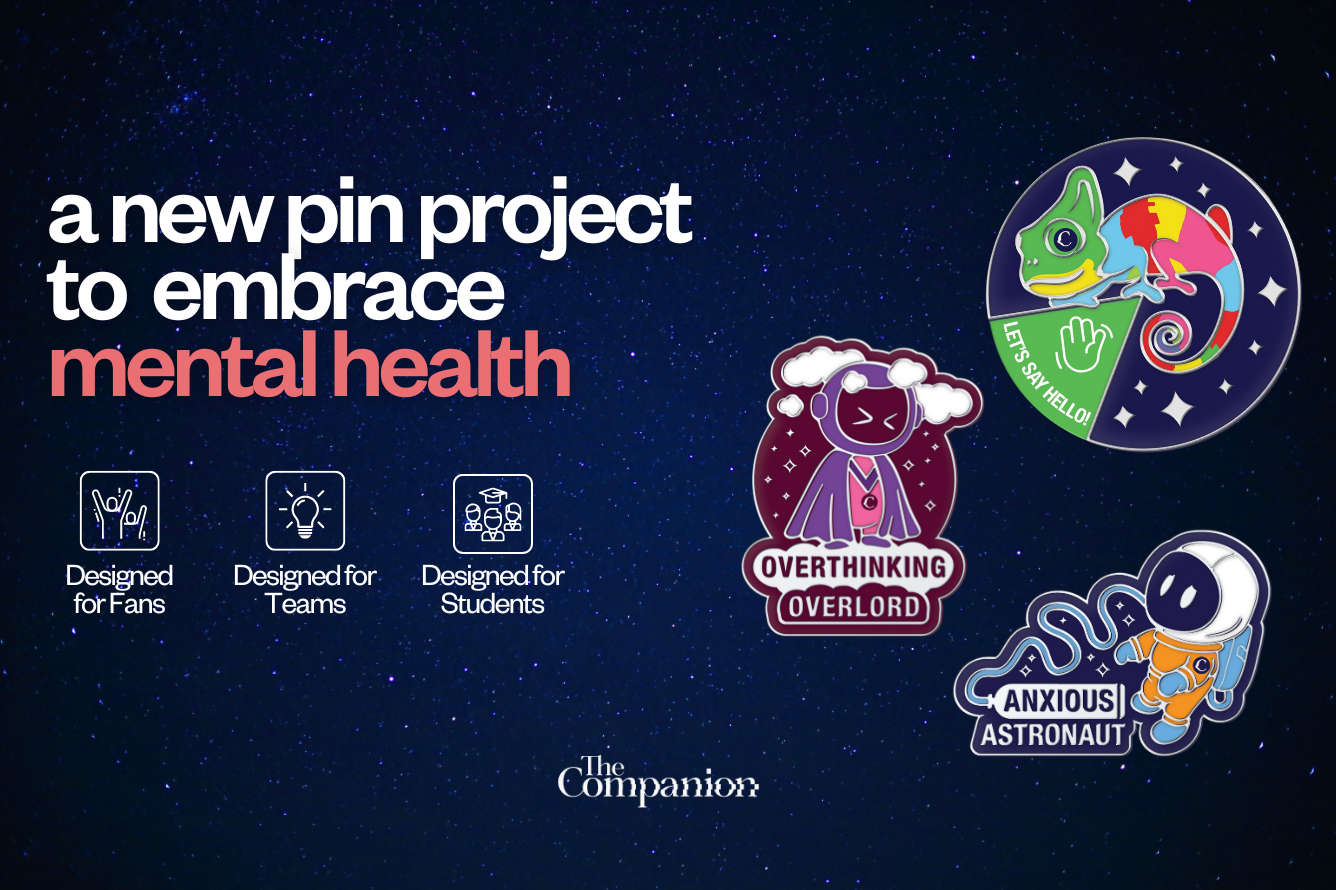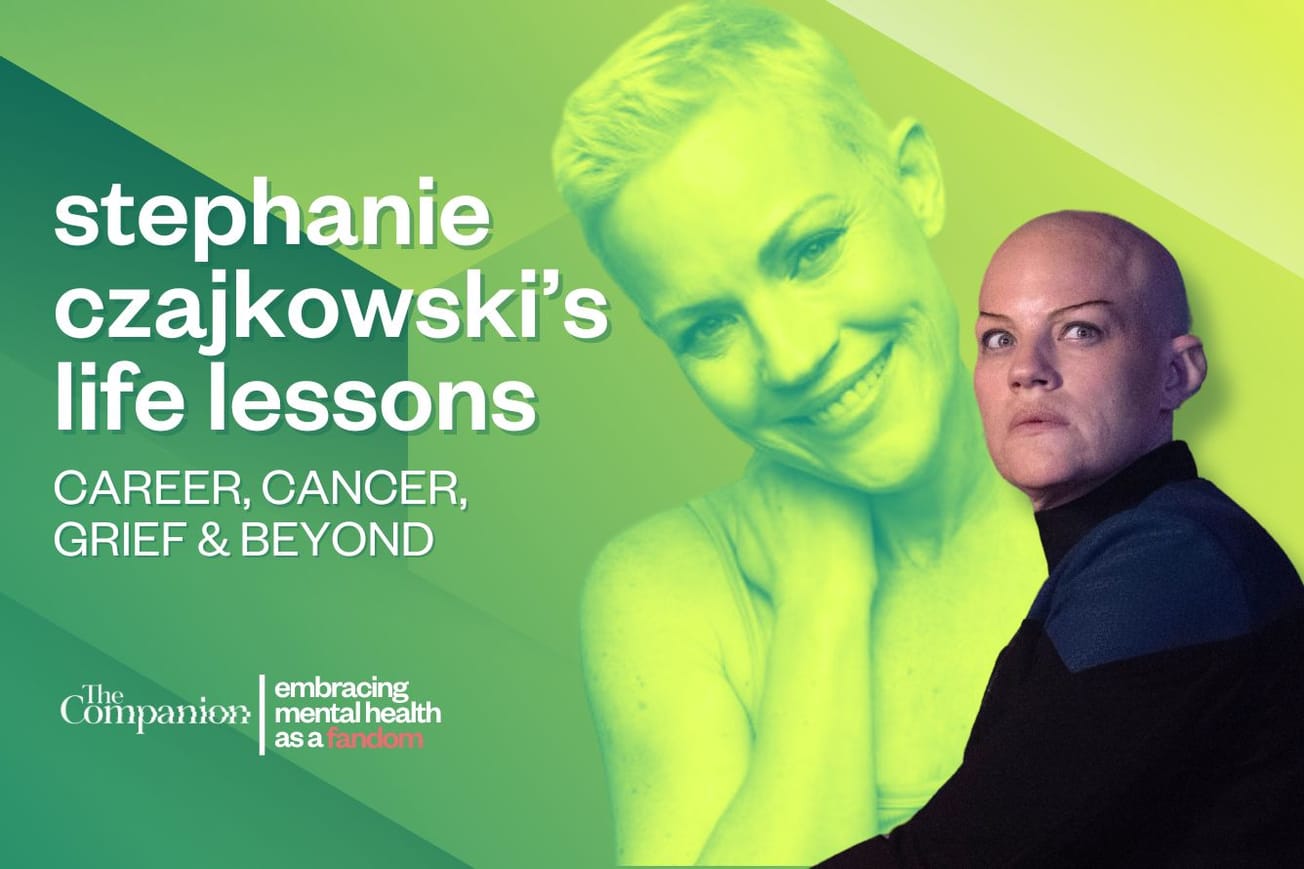Whenever I try to explain how a work of fiction has changed my life, I have learned to ready myself for a blend of suspicious looks, jaws dropped, and a sense of uneasiness in my audience. It is almost as if they were wondering what could possibly have gotten into me. Quite often they conclude, their tone the verbalization of a shrug: “I get it, you like that show a lot.”
To be unable to explain what a piece of art stirs in you. To let it change you, wash over you, course through your bloodstream; to willingly plunge into the challenge it poses, the commitment it demands. It is an epiphany, a singular realization, a keystone moment, and you are certain this encounter was meant to be: it has been waiting for you since you were born.
I have had such experience a handful of times over my four decades of life, at different ages, in contexts both quiet and turbulent. Every time, I could tell this was something else. The writer Pat Conroy, the Spanish musician Rosana Arbelo, and others have stayed with me since my teen years. They remain safe places, sources of enjoyment and wisdom, guiding lights along the paths and detours of my existence. They are healing, cathartic forces who retain their full power to both shake and ground, wreck and restore me. They are such an integral part of me that I can’t describe myself without mentioning them.
They are me.
The Resilience of Laura Roslin
The TV show Battlestar Galactica (the 2004 reimagined version) is my most recent addition to this select group of blessings. Developed by Ronald D. Moore, it joined my emotional hall of fame in 2014, a few years after it went off the air. I was in my late 30s, and I was sick. My right ear acts up sometimes, and when it does, I get vertigo. I was stuck at home, unable to move or to do pretty much anything by myself, at the beginning of what would end up being a nausea-packed six-month sick leave.
Had it not been for this, I probably would never have listened to my neighbor and friend Ana. Ana, bless her stubborn soul, had spent the best part of our encounters the few previous years insisting that I should watch this show. It was not until I found myself in this pitiful state that I gave in to Ana’s demands. Call it serendipity, but it turned out that Oscar, my husband, had bought the box set only a few weeks prior: he had read good reviews about the series and found a convenient deal at our usual department store. We started watching.
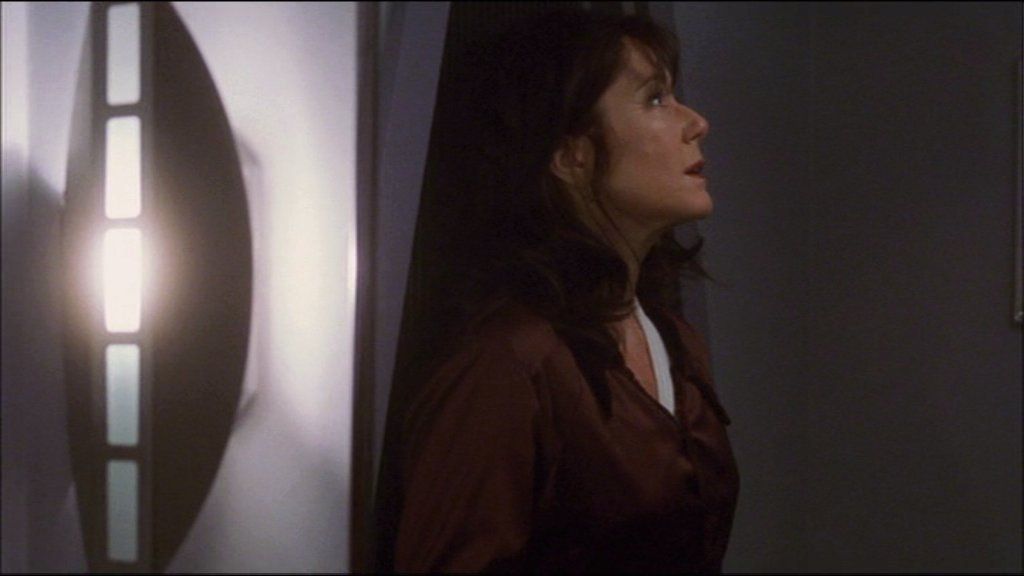
Battlestar Galactica does not hook you up right away. The showrunners, with Moore at the helm, took their time to build the premise, set up the story, and give each character their own distinct traits and troubles. Halfway into Season 1, I remember saying to Oscar: “I still don’t quite see where this show is going. At least, it’s entertaining enough to go on.”
Thus, the beautifully crafted characters, the depth of the story, and its relevant, compelling themes sneaked their way into my system while I remained all but oblivious to the Trojan horse pouring its concoction into my gut. Before I could consciously process any of it, I found myself looking up the names of the actors online, determined to find out if I had seen them before, and if so, where. The shock came as I checked out Mary McDonnell’s IMDb profile. “Wait a minute: Dances with Wolves? That Dances With Wolves?” I couldn’t believe I hadn’t recognized her, or that she was back after all these years. Spoiler alert: she never went anywhere. She simply isn’t as famous in my country, Spain, as she is in the US. Still, I knew other titles she had under her belt. A handful, I had indeed watched.
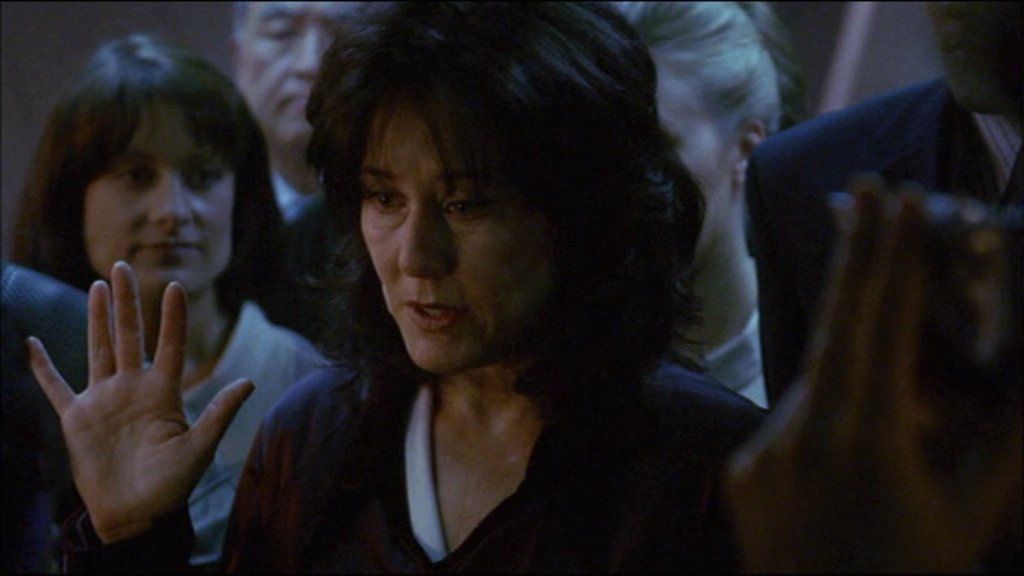
To me, it was, first and foremost, Mary McDonnell’s doing. The character of President Laura Roslin, in her trademark gentle yet resolute style, carved her way into my soul and has lived there rent-free ever since. I wouldn’t trade it for anything. She and Edward James Olmos, in the role of Admiral William Adama, are the leaders of both the Colonial Fleet and the real-life cast. They lend their very spirits to the show, devoting themselves to it, body and soul. They lead by example and become parental figures to both their fellow castmates and the fictional fleet. They materialize and elevate the already fabulous writing of their respective characters with performances so magnificent that you really can’t picture any other actor in these roles. Olmos and McDonnell seem born for Adama and Roslin, and Adama and Roslin created for them only. Both actors dissolve and blend into their respective characters to the point of becoming one with them; in doing so, they lend Adama and Roslin their full energy, their very own humanity. They make them flawed, and real; they make them shine. Their portrayal of their individual arcs, their professional relationship, and ultimately their romance, represents a masterclass in acting and storytelling and is brimming with life lessons and deep humanism.
In the months leading to the vertigo attack which brought me to watch Battlestar Galactica, I had coped with workplace bullying, the death of my surrogate mother, the news that my husband and I couldn’t have children, and a breast cancer diagnosis. Vertigo really was just the icing on the cake, the inevitable consequence of all I was going through. It simply signaled my breaking point and brought me to a halt, creating much-needed space for me to process. Themes such as growth, personal improvement, overcoming trauma, growing into the best possible version of ourselves, and reconciliation with our nature are the guiding light of Battlestar Galactica and were exactly what I needed to be spoken about in the middle of my profound personal crisis. They provide the entire show (and provided me) with a strong sense of direction and purpose.
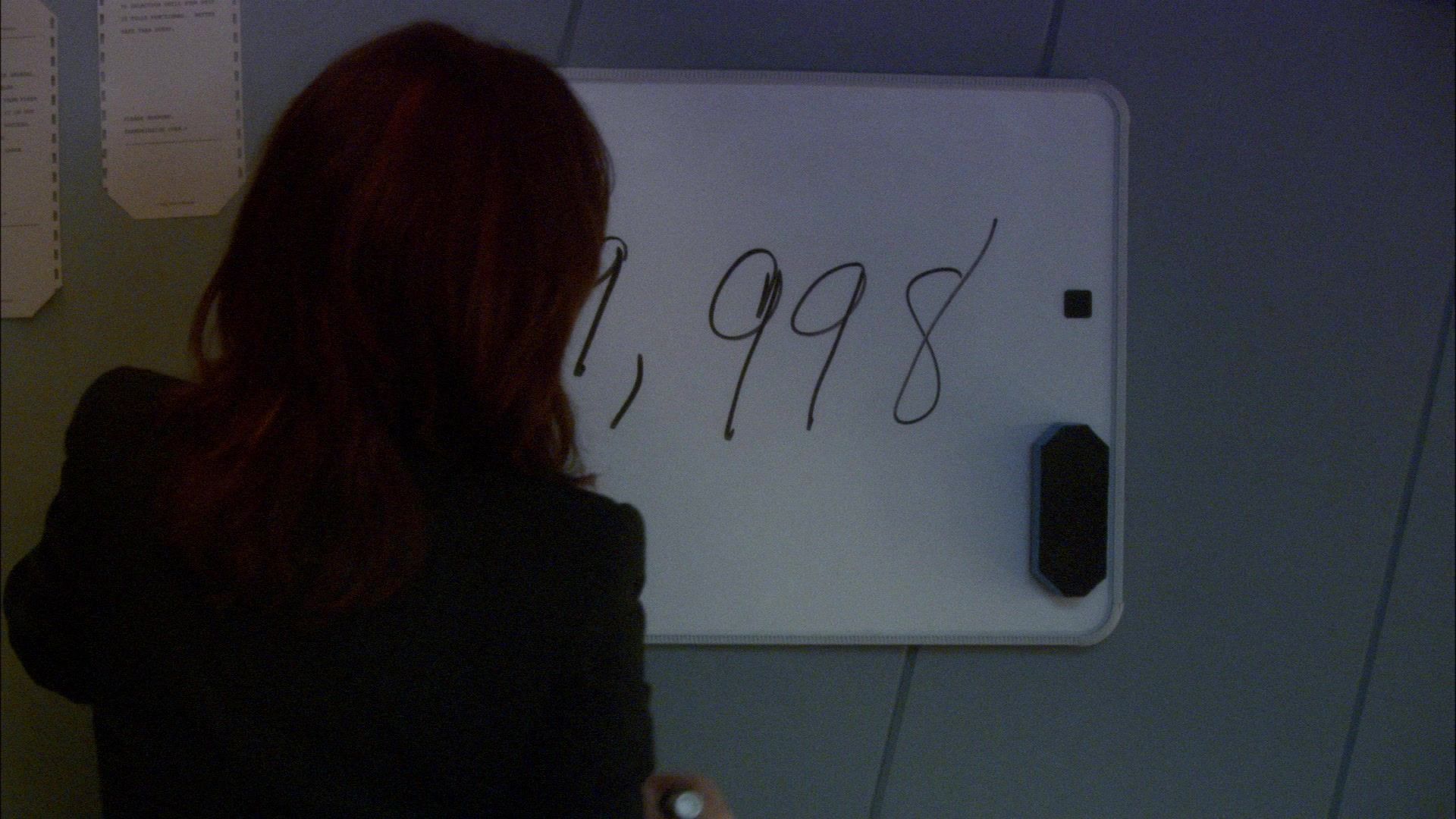
“Why is humanity, as a people or a species, worth saving?” This question is explicitly asked at the onset, then reintroduced several times over the course of the show. In my opinion, it is the true backbone of the story and the perfect counterpoint to the dwindling survivor count that President Roslin keeps on her whiteboard. We want to survive, to thrive, to save ourselves. How couldn’t we? However, we are just a flawed, sorry species slowly drifting across the universe. And here I don’t just mean in fiction; this observation uncannily applies to our current, real world. We are so easy to wipe out; really, we are just a finger snap away from extinction. We must stay humble as we continue to fight. We also are (as the character named Six states) masters of self-destruction. What is the point? The fact that we want salvation, a second chance, whatever you call it, does not mean we deserve as much. We must stay worthy of survival. That is why not everything counts; not even in the apocalyptic situation portrayed in the show. If anything, this desperate situation is more of a reason for us to question ourselves, to wonder who we want to be, and what we want to become. To reflect on what makes us human in the best sense of the word.
Battlestar Galactica is a journey across the vastness of outer space. However, the intergalactic trip is just a metaphor for the journey that matters most on the show: the intimate one. Every character has their own personality, their own starting point, their hopes, and their troubles. All of them are stripped of their former lives, of everything they took for granted and by which they used to define who they were – their homes, cities, jobs, hobbies, and loved ones. In the process of starting anew, as they chase the elusive, mythical Earth, they are forced to face the hardest question of all: who are they? What is their essence when the debris is all that remains?
Battlestar Galactica is About All of Us
In this quest, no character is left unattended. It is notorious in the portrayal of their fears, doubts, and defeats –even more so than in their successes, achievements, and celebrations– that they are unconditionally loved and cared for, in all their flawed humanity, by the writers and showrunners. We see them strive, attempt, fail, overcome, crumble, and eventually rise on their feet again. All of it is sustained by masterful performances. Not a single member of the large ensemble cast gives a dissonant note: their work is as hard, meaningful, consistent, and compelling as if they really were the crew aboard Galactica on the run for their lives. They are exquisitely fleshed out, real, and relatable. They are us.
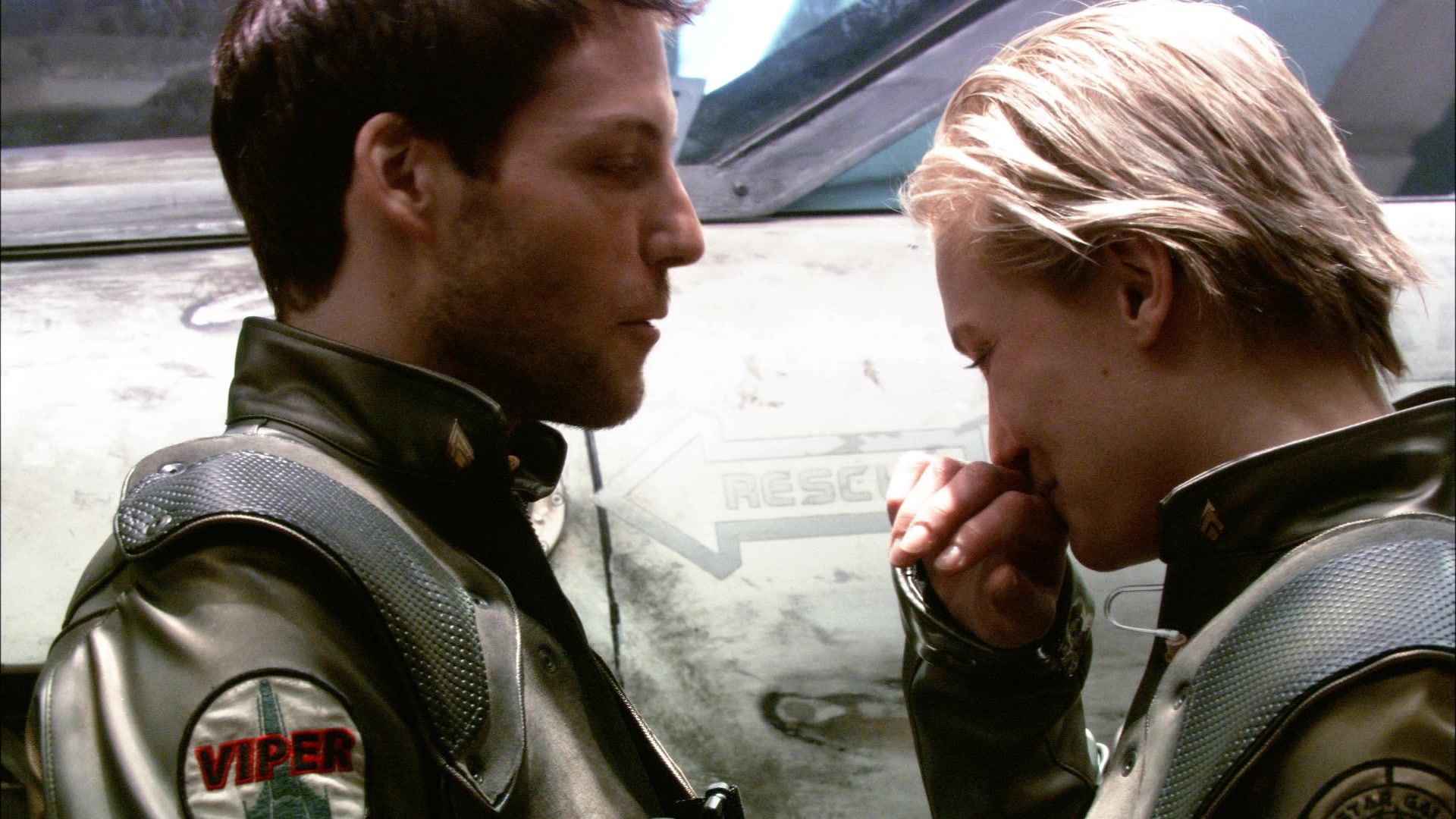
Over the course of their arcs, we see our heroes make awful mistakes and find ourselves admitting that even the most despicable villains have extremely valid points. This is another key strength of Battlestar Galactica: it pushes you to question your preconceptions, redefine your notions of good and evil, and revise your point of view on pretty much all the topics that matter. It submerges you in a world where nothing is black or white; it cracks your mind open regardless of how you feel about it. Battlestar Galactica is not a show; it is an experience. Those who resource to it pursuing escapism or in search of a pastime are in for a surprise – for a letdown, even. It is entertaining, but it is so much more than just that. It is impossible to watch Battlestar Galactica without being affected by its depth and intensity. Several times per season, I had to press pause to breathe and process.
The challenges the characters face are devices to make us viewers struggle with our beliefs and make it a nightmare for us to pick a side. Once it sends your brain reeling, Battlestar Galactica will not solve your dilemma: the eventual balancing point is only yours to find. In a world (our real world) where radicalisms thrive, positions get entrenched, and personal convictions become weapons against the foreign, it is refreshing (as much as ethically vital) to find a show that pushes you through the entire range of grey. Ultimately, Battlestar Galactica is about growth, and growth never comes without self-questioning, without shedding your old skin and embracing the new; the options you are yet to consider.
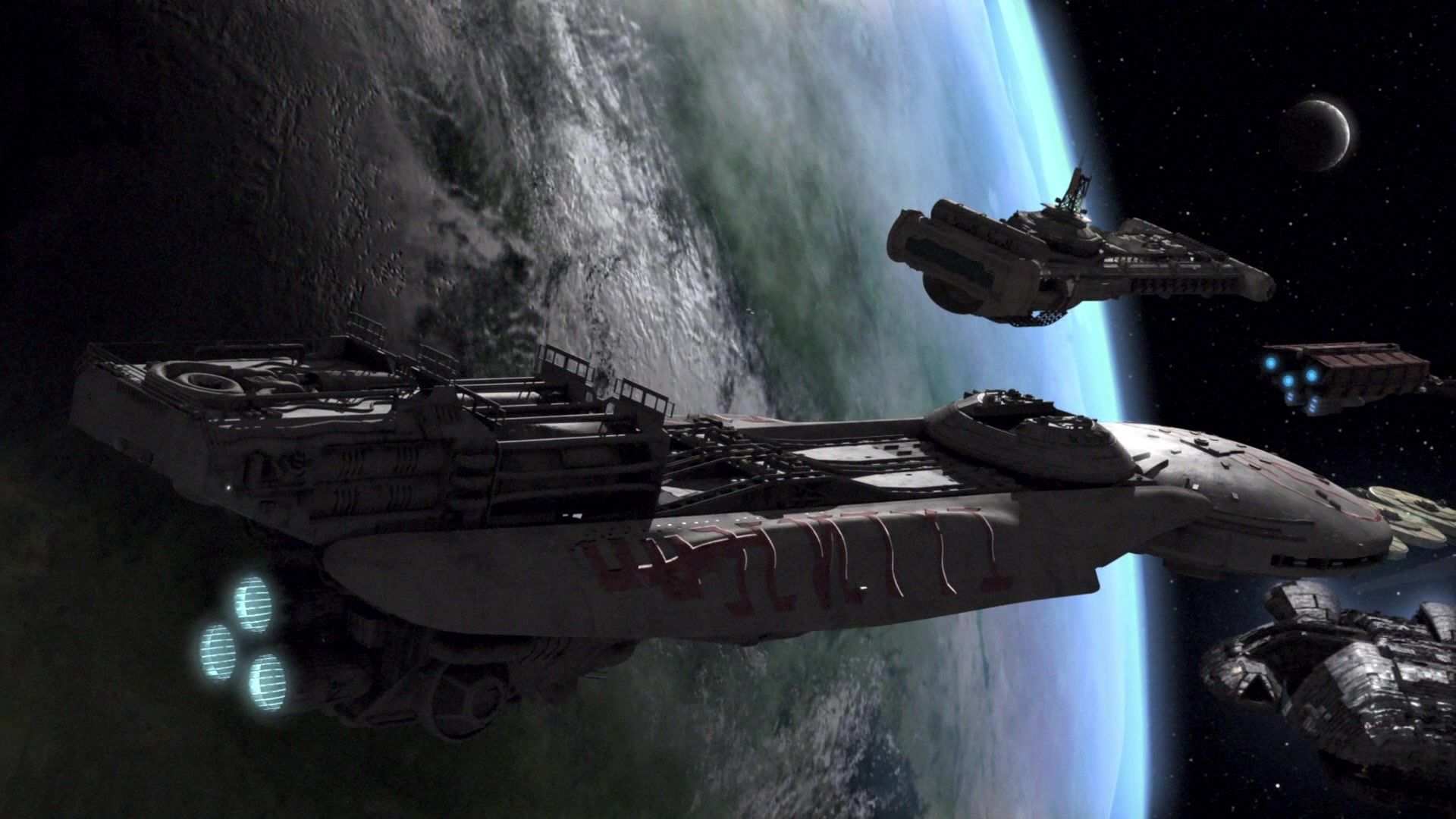
Throughout the entire run of the series, Earth is the light at the end of the journey. It holds a literal meaning as the planet that the Colonial Fleet hopes to find and settle on. However, it soon becomes clear that it is meant to represent much more than just that. Earth is a symbol, a beacon, an act of faith; the ultimate proof that the characters have overcome their demons and achieved the best version of themselves. Fate, religion, and God’s plan, are all present from the onset, along with profuse mythology mostly taken from the Ancient Greeks. I assumed this was creative license, but in the last episode, it happens to have a much deeper meaning. It fits seamlessly with the entire storyline as we discover that rather than the Colonials borrowing the Greek gods, it works the other way around: it is the Greeks who inherit the Colonial religious system.
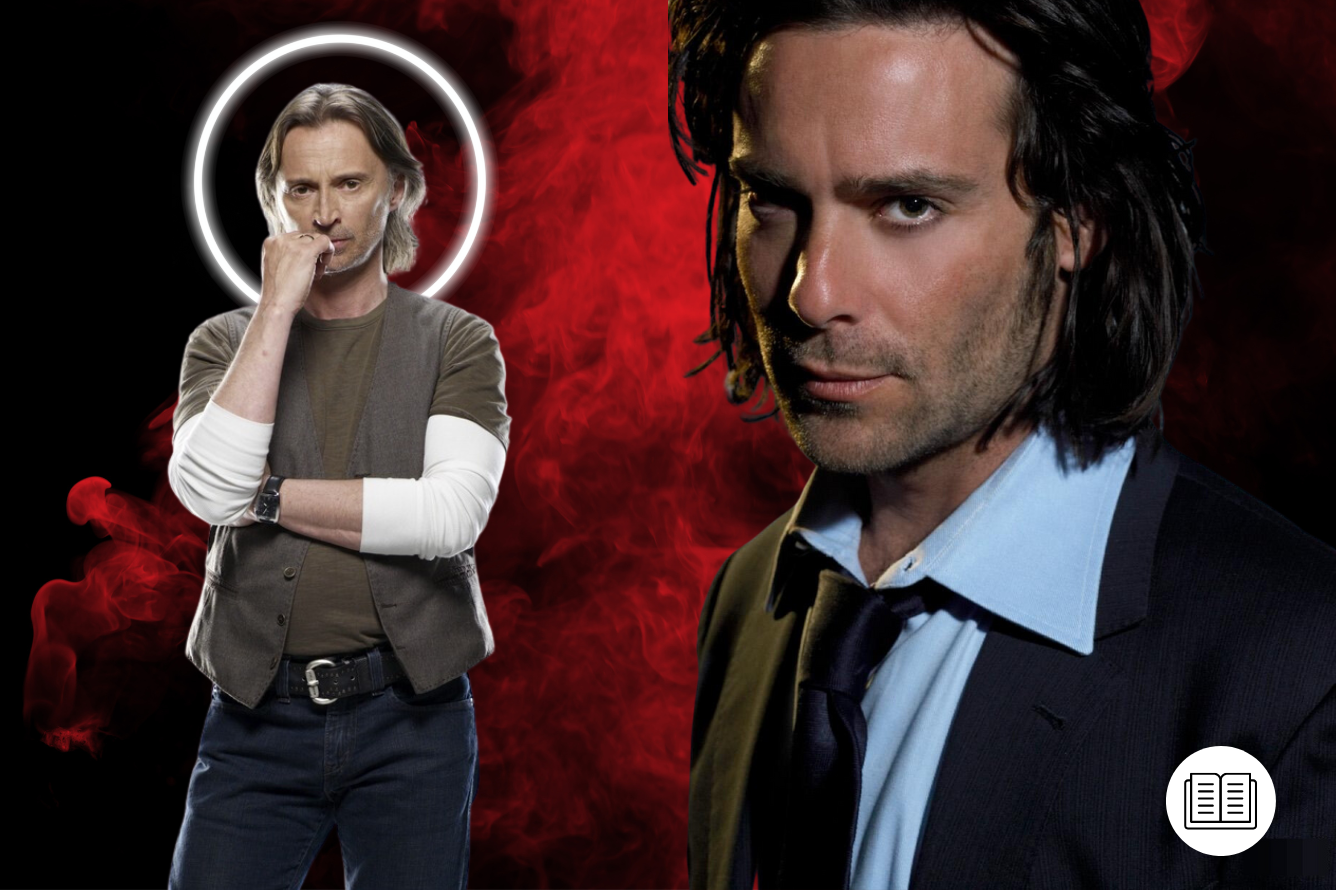
I love that Earth is imbued with such an aspirational quality. Over the centuries, we humans have devised a million different ways to mistreat and overexploit our home planet, depleting its resources to inconceivable extents. Battlestar Galactica presents Earth as the wonder, the gift, the miracle it is; deepens our appreciation for this unique world we were born into.
Battlestar Galactica is a Religious Experience
As religion, destiny, mythos, and mystery, jump into the spotlight one last, meaningful time toward the very end of the finale, many viewers can’t help but feel disappointed that not every single plot thread gets explained. Upon hearing this kind of criticism, and while I firmly believe that the world is richer because we disagree, I can’t help but wonder how these disenchanted viewers (many truly went berserk) could have possibly missed the spiritual, poetic tone that Battlestar Galactica breathes since the very first minute of the miniseries. I was not surprised that a few elements (just a couple, really) are left open, their resolution not strictly logical. Why do we humans need to have it all spelled out for us? Why does everything have to fit perfectly in fiction when it rarely does in real life? Do we not have the experience of feeling fulfilled, in awe with certain real-life circumstances, even when we can’t quite explain where they stemmed from? Must we, at all points, know or understand why things happen the way they do? Why can’t we just let wonder wash over us? Who has never experienced the very strong feeling that a certain event in their lives was meant to be, even if you can’t tell how? Why do we find it so hard to get along with the unknown, when about 80 per cent of the universe remains a mystery to us? Why does logic always have to override poetry? What does this assumption do to our souls, to our dreams?
Battlestar Galactica is a story about growth, redemption, fulfillment, wonder, reconciliation, and hope. From this perspective, it offers closure with a free hand, and I hold the strong belief that you should better have your heart urgently checked if the finale, or at least parts of it, does not move you to tears. The show provides exquisite closure to all the characters’ arcs. The resolution to most of the mysteries that plague the storyline from the beginning (the Opera house, Earth’s coordinates to name just two) is equally mind-blowing.
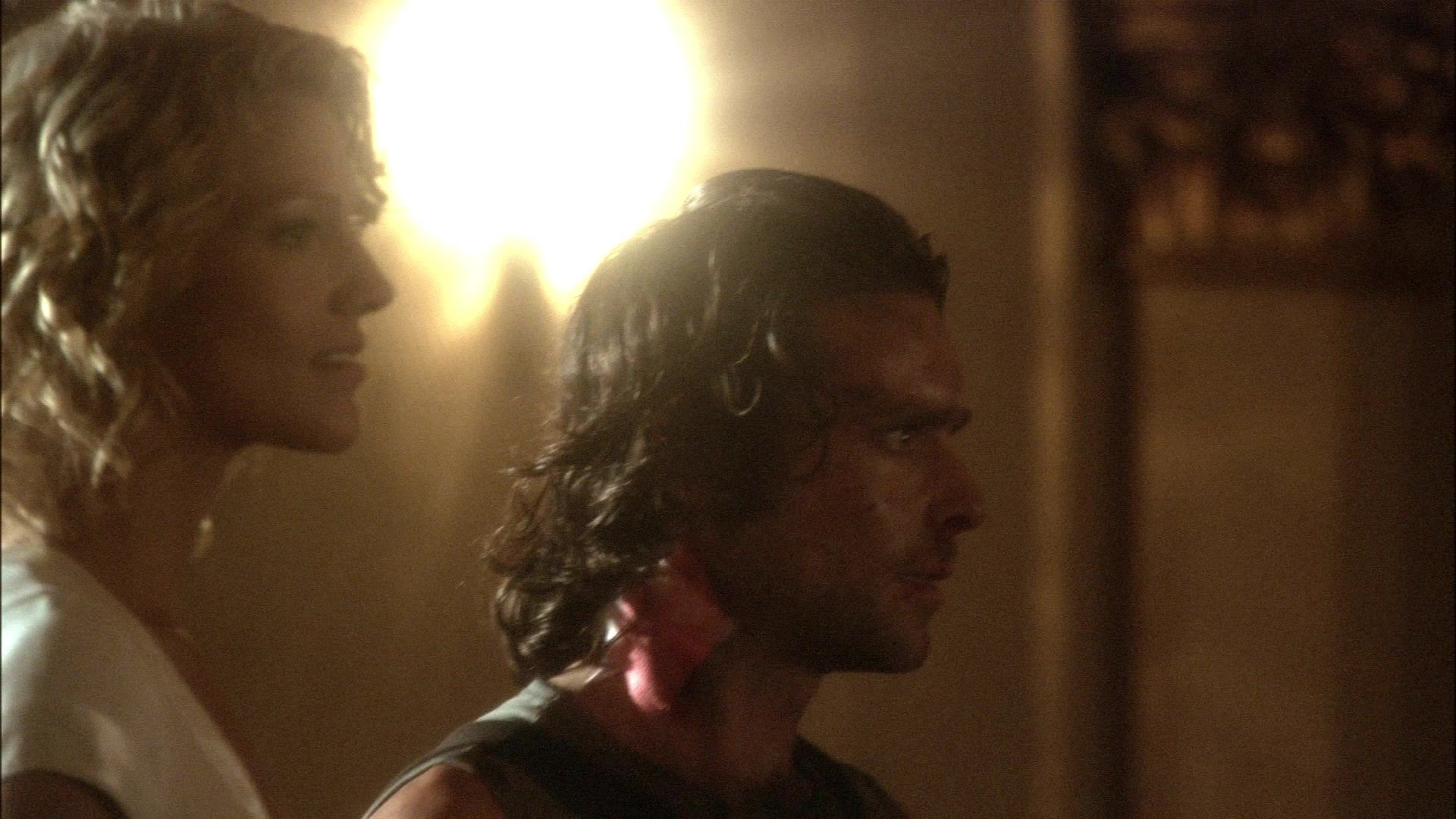
I made my own journey while watching this show; I felt I was sharing these characters’ quest, bound to similar challenges and limitations, driven by similar hopes, determined to get out of my hole and grab a new chance at life with all the strength I could muster. I know I am not the only one. We are speaking about a deeply humanistic work of art where everybody is worthy of redemption. This is the effect that Battlestar Galactica has on your soul: healing, purpose, forgiveness. This show does not mask pain: it guides you through it. I know of no other show that can accomplish this. This essay is, more than anything else, the story of how Battlestar Galactica saved me. I came out of the Battlestar Galactica experience a different person because this is a show meant to make a difference, at both individual and collective levels.
All this goes to explain why, as ‘Daybreak, Part 3’ (S4, Ep21) ends and the credits of the last episode appear on your screen, you feel you are losing your family. There is a reason why ‘Fleet is family’ has become the motto for all devoted Battlestar Galactica fans since its end twelve years ago. The series invites us to stop repeating the mistakes we have made across the centuries and strive for a fresh start all together as a single race: the human race, as Edward James Olmos stated when, in March 2009, members of the cast and crew were invited to a panel at the United Nations. The hardest, hottest topics the series touches on were explored during this panel and used to highlight the challenges of our world today. Can you name another TV show that has enjoyed such an honor?
The Impact of Battlestar Galactica
Although the themes of the show make it very fitting for it to deliver such a message, things may not have evolved the way they did without the influence of the Colonial Fleet paterfamilias, Edward James Olmos. From the very first day of filming, the actor portraying William Adama saw what the show was meant to be and made it crystal clear to everyone else. He went as far as to improvise the mythical battle cry: “So say we all!” which has reached far beyond the confines of the small screen (I admit to having caught myself mumbling this at mass instead of ‘Amen’, and I know I am not alone). Olmos became the driving spirit of the Battlestar Galactica creature, its very soul and breathing energy, both in fiction (as the Admiral who leads and protects every human being in the fleet as if they were his children) and in real life, imbuing the entire cast and crew with a sense of purpose that pushed everyone to give their best in their roles. It is unanimous that he and Mary McDonnell created a family, on and off-screen. To this day, the Battlestar Galactica cast and crew call themselves family. They act as one.
This essay would be incomplete without mentioning the role that world-building plays in the effectiveness of the story. While we are led to assume, up to the very end, that the story takes place in the future, there is nothing futuristic about it. There are no aseptic environments, no blinding lights, and no aliens. Many screen-used props resemble objects we discarded as obsolete decades ago (cord phones, paper clipboards…). The stark decors further highlight the obvious: this is a story about people. Naturalistic science-fiction, as Moore states as early as in his series Manifesto; he stays true to it until the very end. Special mention goes to the music. Bear McCreary’s haunting score fits, accompanies, enhances, shakes, highlights every scene in ways both subtle and magnificent. Late in the series, music becomes a key plot point. Again, the poetry; again, the magic. Everything is intertwined, and operates together to create a whole.
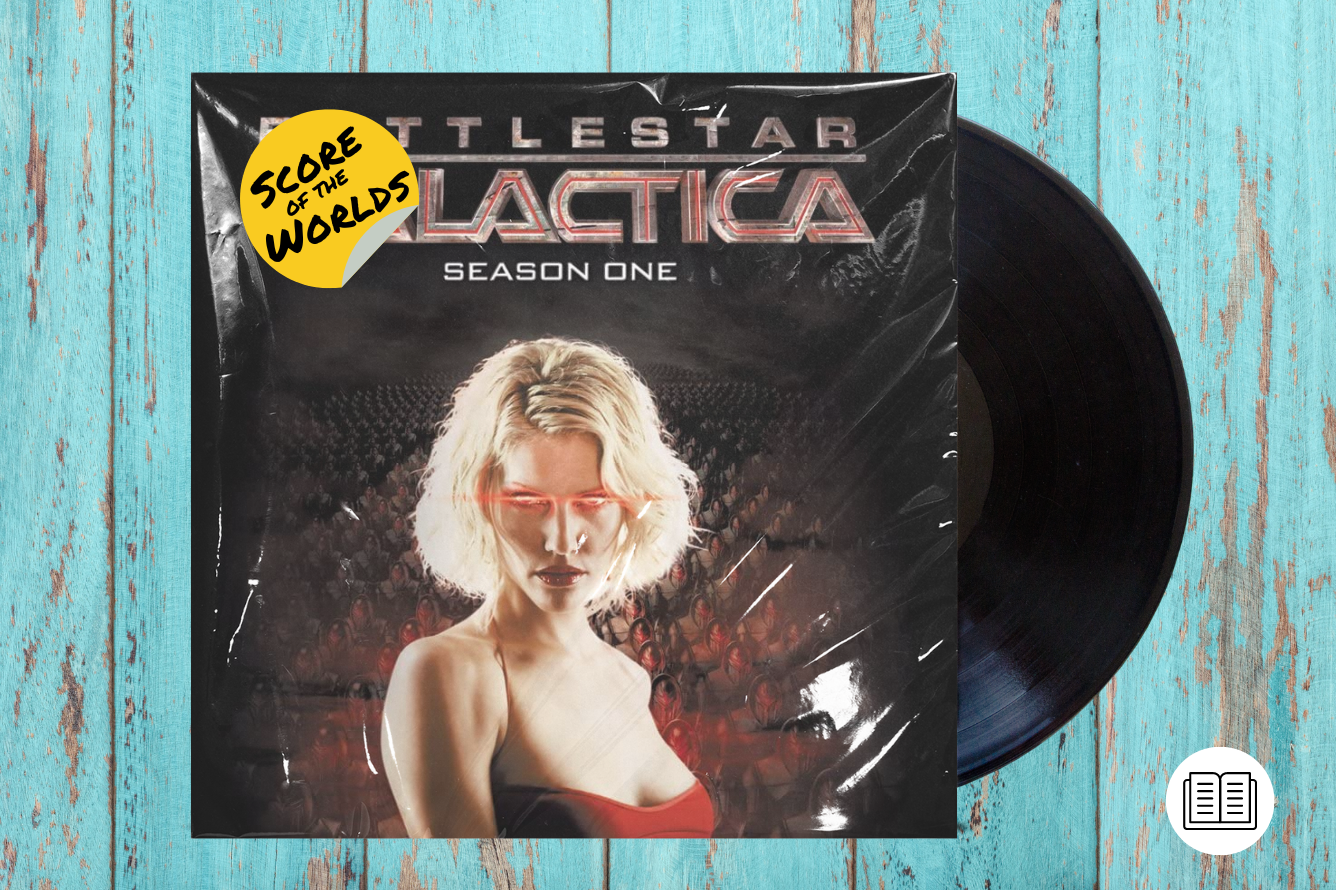
“All this has happened before, all this will happen again,” Battlestar Galactica warns, inviting us to break the vicious circles humanity is caught up in. In a looser interpretation, I am using this phrase to justify ending this essay right where I started it: with a reflection on fandom.
Being a fan means letting art seep into your bones, affect you, and change you. Being a fan means you are willing to feel and express admiration and gratitude. It means there is an endless source of passion and creativity in your life; a safe place you find shelter in when everything turns meaningless, and your very existence miserable. It guarantees you can always be rescued from your demons. Being a fan means that you are thrilled to meet people who share your interests; that you are willing to connect, to expand, to include, ready to ignore borders and all that divides. Fans, supporters, and admirers in all their forms lie at the very core of art’s purpose because all the beautiful, terrific, inspirational works humanity has created reach their highest potential by what they communicate to other humans, not just by the author’s own sense of accomplishment or the beauty of their work. It is through this exchange that art improves the world, and for it to operate there must be a receiver. Being a fan is being committed, loyal, reliable, and thankful to those who give us art that makes us dream, that makes us better.
Because I am a fan I have traveled, met incredible people, and enriched my perspective on pretty much everything. I have enlarged my world, visited amazing places, stepped out of my comfort zone, pushed my limits, and allowed my emotions to thrive. Because I am a fan, I have raised funds for worthy causes, and drawn my loved ones into worlds of joy and wonder.
What are you a fan of?
This article was first published on January 25th, 2022, on the original Companion website.
The cost of your membership has allowed us to mentor new writers and allowed us to reflect the diversity of voices within fandom. None of this is possible without you. Thank you. 🙂


